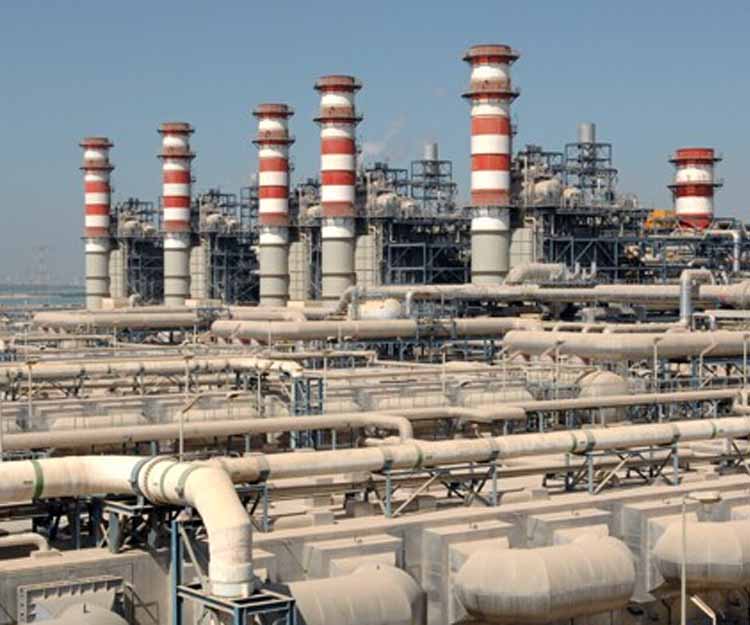In 2020, the bay area will increase by 40%.
time:2016-01-11 count: writer:admin
Polaris energy-saving environmental protection network news: according to the meed project "magazine provides the latest data show, in order to meet the rapidly growing water needs, the GCC (Gulf Cooperation Council) will continue to increase the desalination facilities scale, it is expected that by 2020 the region of seawater desalination projects with a total installed than the current increase of nearly 40%.
It is understood, the GCC countries seawater desalination total production capacity to 40 billion gallons / day (imperial gallon, the same below), with the GCC countries in the field of drinking water supply investment increased year by year, over the next 5 years the GCC countries seawater desalination, the overall size of the project will increase to 55 million imperial gallons / day, the expansion ratio is close to 40%.
Due to economic and rapid population growth caused by a sharp increase in the demand for fresh water or groundwater supplies are exhausted and so on, in the United Arab Emirates, Qatar and Saudi Arabia and other Gulf countries seawater desalination is becoming more and more important.
Figure: Al-Khair Ras, the world's largest sea water desalination in Saudi Arabia
The meed project "magazine content and analysis of director ed James believes that because of the need for more and more water resources, water in the region desalination market is to make the world look askance at the speed of development.
At present, the region's drinking water needs about 3 billion 300 million gallons / day, to 2020 is expected to grow to 5 billion 200 million gallons. While the comparison of the above data seems to be able to meet the growth of desalination facilities can meet the needs of water and can be left a considerable part of the reserve water, but the actual situation in different countries is not the same.
For example, Qatar and the United Arab Emirates in recent years has been adequate water supply, but Saudi Arabia, Oman and Kuwait will always face the challenges of water shortage, especially in the summer. In addition, the aging of the seawater desalination facilities also led to the operation of the design capacity can not be achieved, which also further reduced the GCC national desalination project actual freshwater production and output.
Ed James said: "with the oil sector revenues falling, water supply problem also has been raised to the certain political height, at present many countries are to take measures to curb demand for fresh water, and hoping to reduce heavy government subsidies. For example, Abu Dhabi decided at the beginning of this year will live in the basic price of expatriates in the United Arab Emirates from 2.2 dirhams / ton rose 5.95 dirhams / ton, or about 170% and hope take this means to reduce the water demand of people and reduce subsidies. The measure followed the 2010 implementation of the measures to increase water charges in Dubai, the implementation of the measures to make water demand growth rate in Dubai fell from 10% to 4%."
In addition, ed James also to the GCC countries future desalination market development were predicted, he said: "according to our statistical data, in the past 10 years, the GCC region in terms of independent construction of water conservancy projects, a total investment of $760 billion. If we count the investment of these items such as power and components, this figure will be more than $100 billion. Looking to the future, we are expected to invest heavily in the field of sea water to invest in Saudi Arabia, Abu Zabi, Oman and Kuwait, because these countries are very strong demand for drinking water in the short term. Over 1 billion 500 million gallons of seawater desalination projects over the next 5 years will also require huge investments."
James Ed specially stressed that the large amount of funds for the expansion of desalination facilities will focus on and development of non energy intensive desalination technology. After GCC mainstream seawater desalination technology for multi-stage flash (MSF) and multi effect distillation (MED), both of which require a large amount of energy consumption. Currently the two technical routes for the GCC countries has become increasingly unattractive, because they found that using these techniques to build the seawater desalination project will burn more and more of their oil, while oil is currently they think is the need to protect, or is to be for a valuable resource of the export and the development of heavy industry.
James Ed said: "at present, the reverse osmosis membrane technology in GCC countries are becoming more and more popular, because it relies on chemical products instead of heat to achieve the purpose of desalination. In addition, the technology can not only save energy, but also reduce carbon emissions."
Next:no
